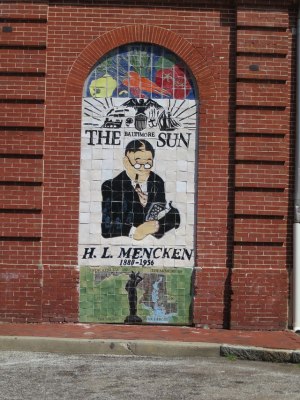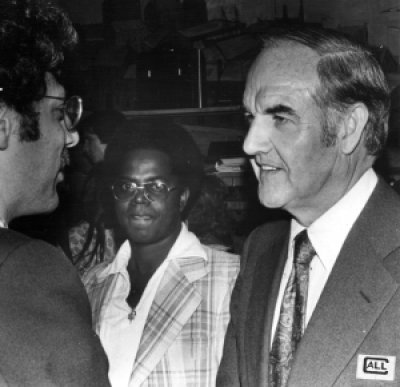
I recently attempted to fill one of the many gaps in my education by reading an anthology of work by H.L. Mencken, a Baltimore-based journalist of some renown during the first half of the 20th century (“The Vintage Mencken,” edited by Alistair Cooke). I came away disappointed.
Though I had already prepared myself for his well-advertised racism and antisemitism, I hadn’t realized that he was a misogynist as well. And, though he could certainly turn a phrase, many of his pieces do not hang together with any sort of coherence. For example, the longest — a critical essay about Theodore Dreiser — begins by mocking him, moves on to trashing him and then concludes with the observation that maybe he wasn’t so bad after all. I say this without any personal insight into Dreiser, as I don’t believe I’ve ever read him, not even his best-known novel, “Sister Carrie.” I just thought it was odd that Mencken couldn’t make up his mind.
Some of Mencken’s writing, of course, was satisfying. I particularly enjoyed this description of life as young reporter and how it had deteriorated into something approaching factory work:
Whether or not the young journalists of today live so spaciously is a question that I am not competent to answer, for my contacts with them, of late years, have been rather scanty. They undoubtedly get a great deal more money than we did in 1900, but their freedom is much less than ours was, and they somehow give me the impression, seen at a distance, of complacency rather than intrepidity. In my day a reporter who took an assignment was wholly on his own until he got back to the office, and even then he was little molested until his copy was turned in at the desk; today he tends to become only a homunculus at the end of a telephone wire, and the reduction of his observations to prose is commonly farmed out to literary castrati who never leave the office, and hence never feel the wind of the world in their faces or see anything with their own eyes.
Some of Mencken’s best pieces are obituaries of the famous and the infamous, and he especially rises to the occasion following the death of William Jennings Bryan. “He was, in fact,” Mencken writes, “a charlatan, a mountebank, a zany without sense or dignity. His career brought him into contact with the first men of his time; he preferred the company of rustic ignoramuses…. He seemed only a poor clod like those around him, deluded by a childish theology, full of an almost pathological hatred of all learning, all human dignity, all beauty, all fine and noble things. He was a peasant come home to the barnyard.”
Good stuff, even if it doesn’t quite rise to the level of Hunter S. Thompson’s monumental sendoff of Richard Nixon, which remains in a class of its own.
I enjoyed Mencken’s putdown of Woodrow Wilson, who has only gradually come to be regarded as one of our worst presidents. (“[H]e knew better than they did how to arrest and enchant the boobery with words that were simply words, and nothing else.”) Then again, Mencken disdained Franklin Roosevelt and even expressed some misgivings about Abraham Lincoln, offset by his grotesque nostalgia for the Confederacy.
I guess the best way to understand Mencken is not as a half-forgotten genius but, rather, as a flawed but talented writer who will probably continue to fade into obscurity.
This post was part of last week’s Media Nation Member Newsletter. To become a member for just $5 a month, please click here.


